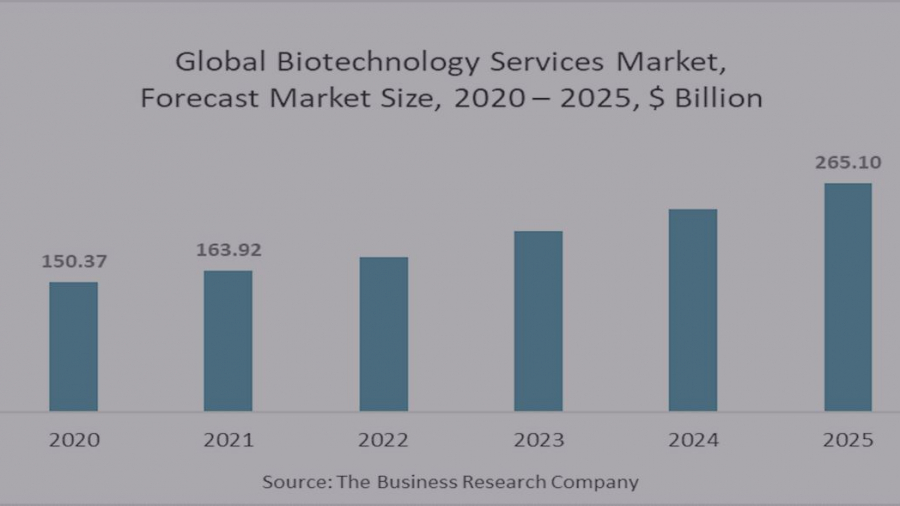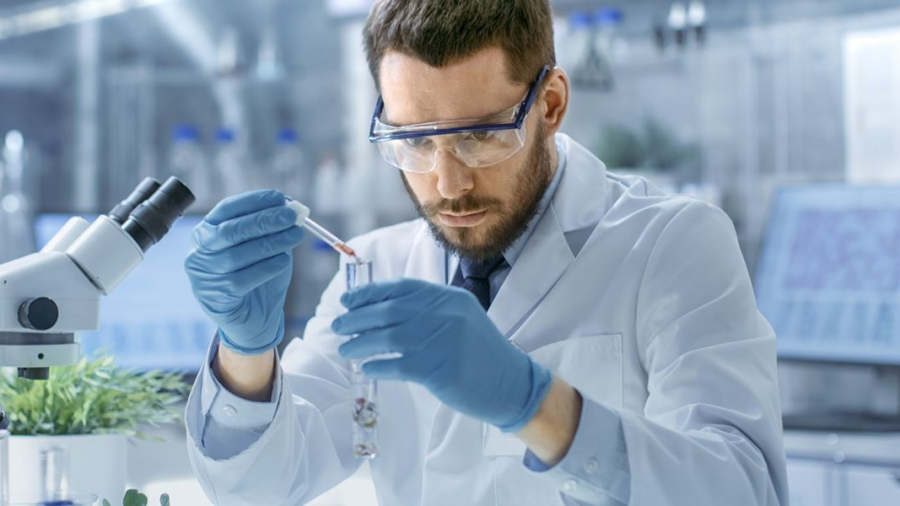The Business Research Company’s Biotechnology Services Global Market Report 2021: COVID 19 Impact And Recovery To 2030
LONDON, GREATER LONDON , UK, June 24, 2021 /EINPresswire.com/ — The increasing pervasiveness of conditions like hepatitis B, diabetes and cancer is driving the research in biotechnology. Biotechnology uses research tools from biology and chemistry to study the genetic material of bacteria and viruses to check the disease-producing agent. Oncology research is most prominent among biopharma companies. Stem cell treatment, using a monoclonal antibody for therapy and genome sequencing is progressing in medical applications. The sales of global biotech drugs are expected to reach $284 billion in 2020. According to Data-Driven Investor, all sectors of biotech companies together spend 20% of their budget on research and development, accounting for nearly $750 billion in 2018. Therefore, the rising pervasiveness of diseases and huge expenses on R&D is predicted to contribute to the growth of the biotechnology services market.The biotechnology services market consists of the sales of biotechnology services and related goods by entities (organizations, sole traders and partnerships) that engage in conducting research and experimental development in biotechnology. Only goods and services traded between entities or sold to end consumers are included in TBRC’s biotechnology services market analysis report.
The global biotechnology services market is expected to grow from $150.37 billion in 2020 to $163.92 billion in 2021 at a compound annual growth rate (CAGR) of 9%. The growth is mainly due to the companies rearranging their operations and recovering from the COVID-19 impact, which had earlier led to restrictive containment measures involving social distancing, remote working, and the closure of commercial activities that resulted in operational challenges. The market is expected to reach $265.1 billion in 2025 at a CAGR of 12.8%.
The major players covered in the biotechnology manufacturing services market are Novartis, Fisher BioService, Pfizer, Novo Nordisk, BioAlps, Precision for Medicine, Sartorius, Aldevron.
TBRC’s biotechnology industry report is segmented by service into prevention and disease control, public engagement activities, health education and research, food biotechnology services, donor recruitment, tissue collection, cell processing and isolation, research and development, by industry into clinical research organizations (CROs), contract manufacturers organizations (CMOs), contract research and manufacturing services (CRAMS) and by area of application into pharmaceutical, biotechnological, academic, clinical trial, healthcare sectors.


